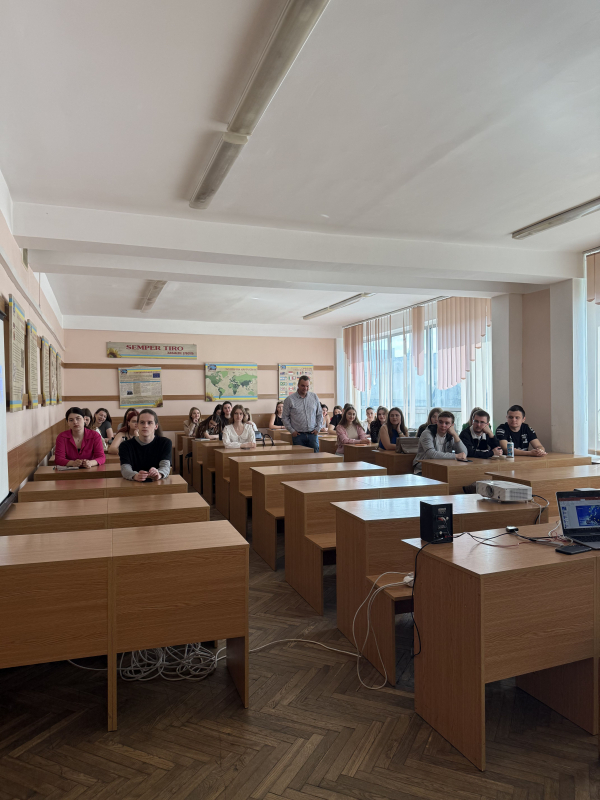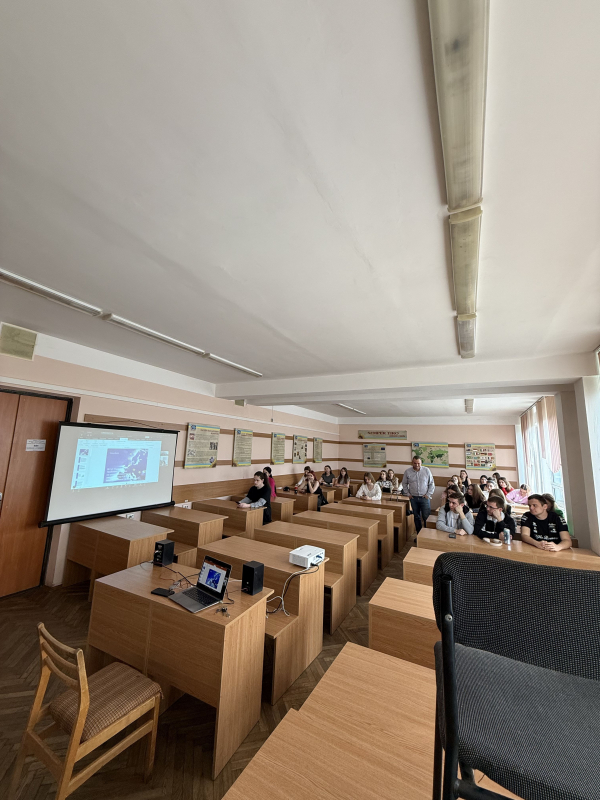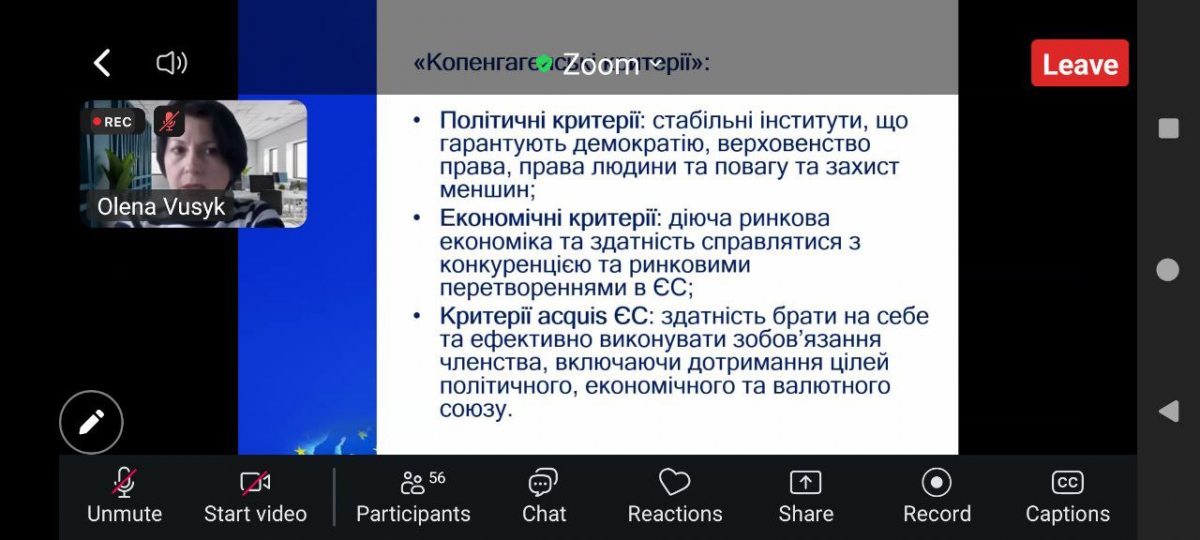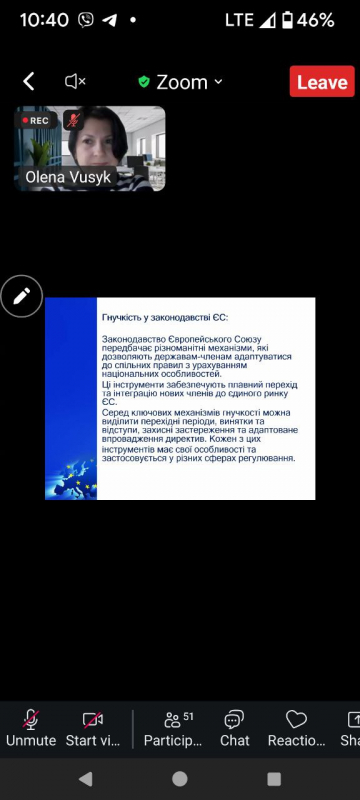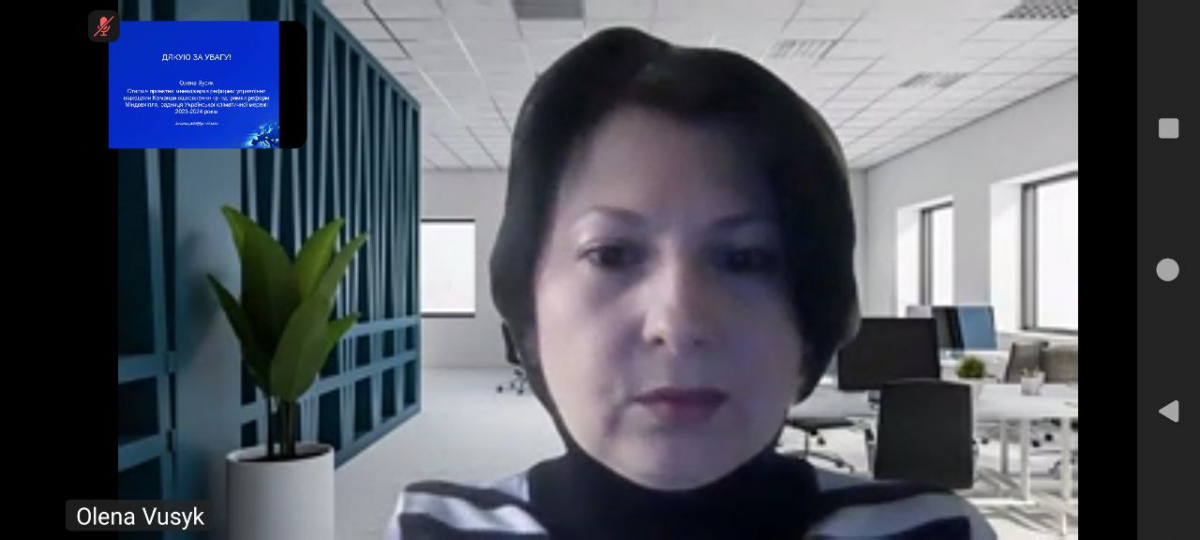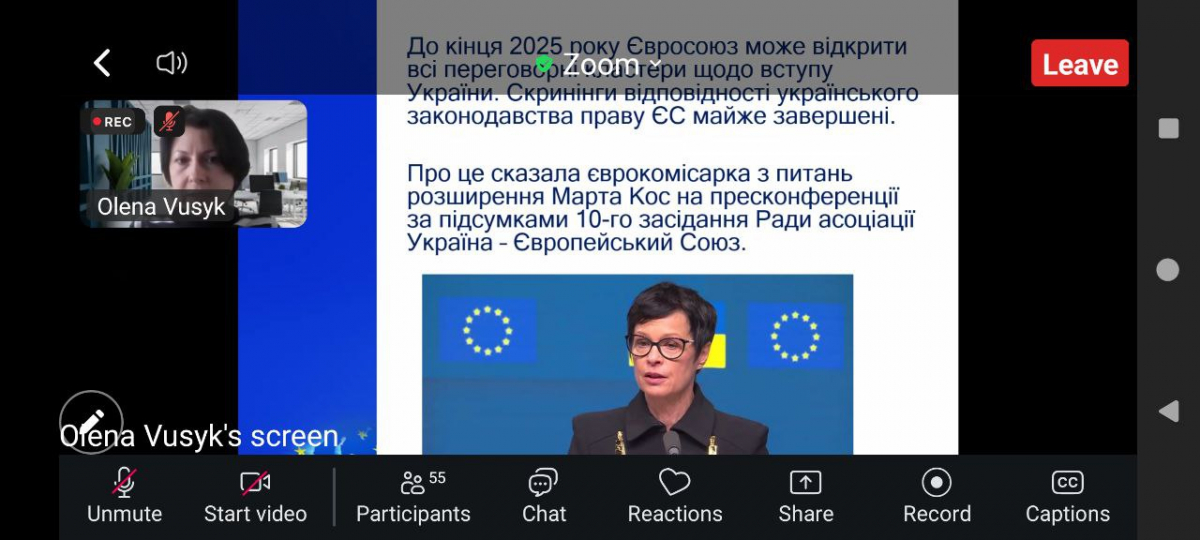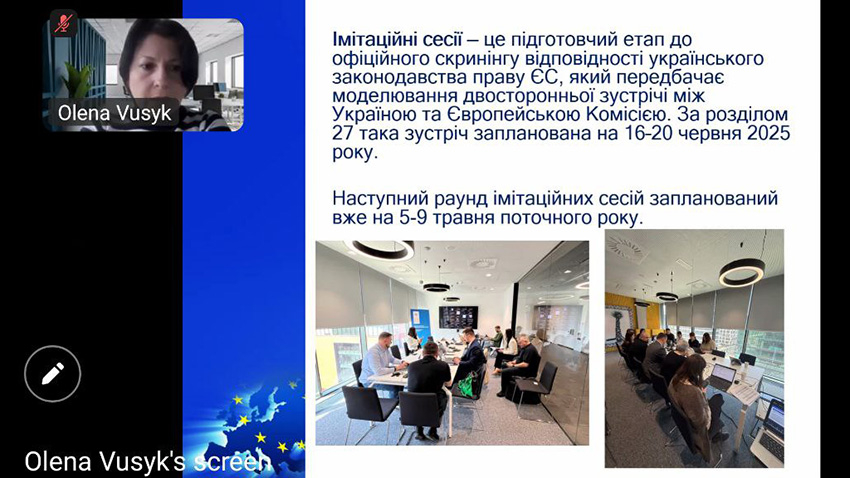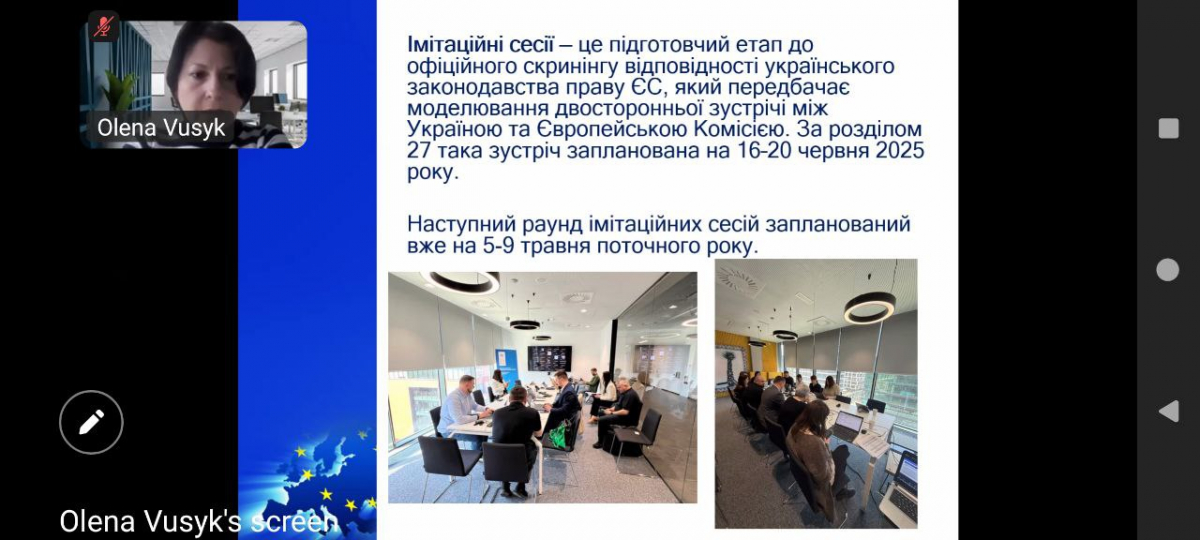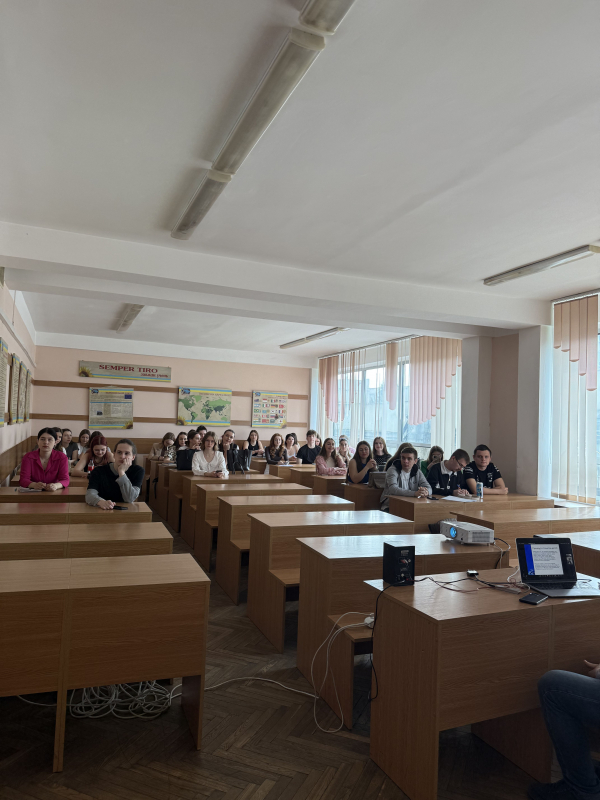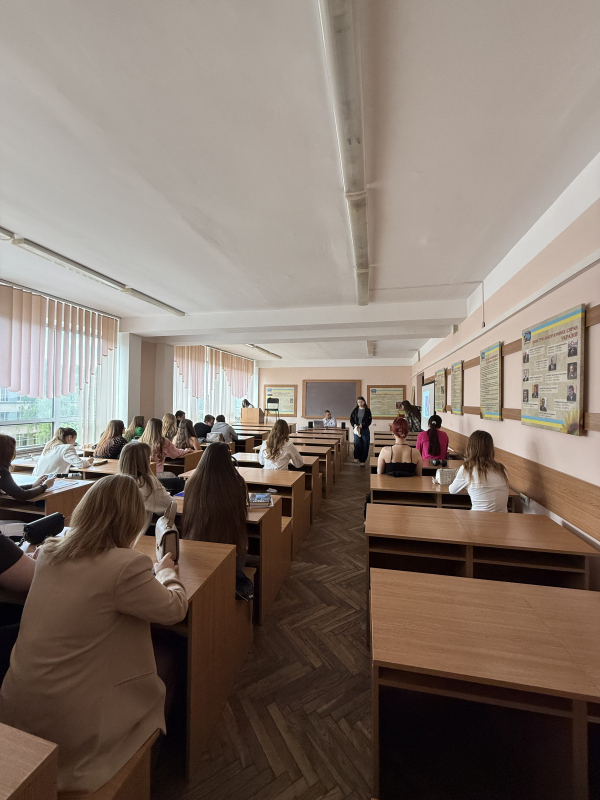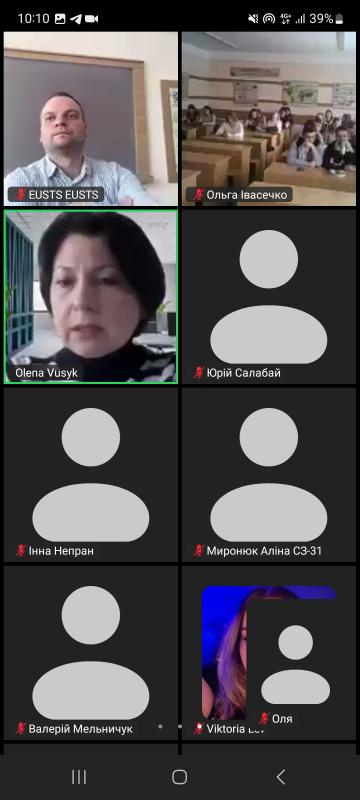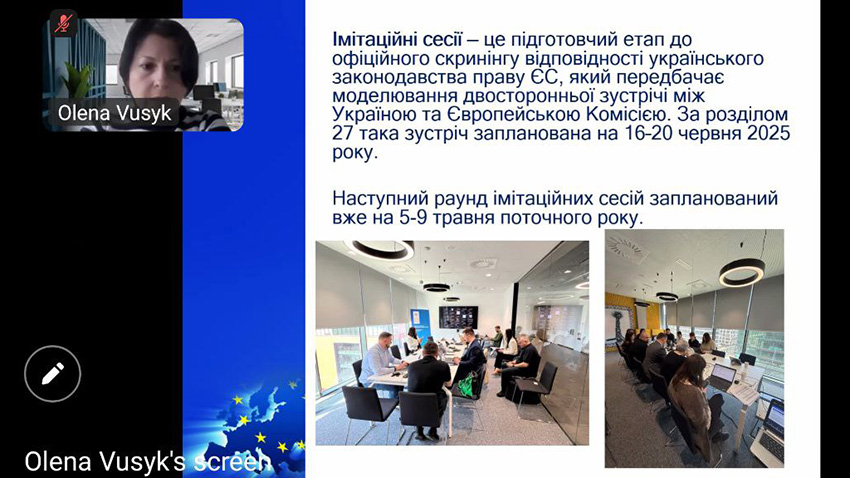On May 1, 2025, a public lecture by Olena Vusyk, Senior Project Manager of the Waste Management Reform of the Recovery and Reform Support Team of the Ministry of Environment, lawyer, analyst, expert in regulatory drafting, advisor to the Ukrainian Climate Network 2023-2024, was held in a mixed format on the topic: "Ukraine's Accession to the EU: Problems and Successes in Implementing EU Legislation in the Field of Environmental Protection and Climate Change" within the framework of the implementation of the project "European Studies for Technical Specialties at the National University "Lviv Polytechnic" (EUSTS), which is implemented with the support of the EU Erasmus+ Jean Monnet program, activity: public lectures.
It is worth noting that the topic raised by Olena Vusyk aroused considerable interest among students, as 96 participants joined the event (56 online and 40 in person).
During the lecture, the speaker first of all outlined Ukraine's path to negotiations, namely, she spoke about the fact that the Association Agreement between Ukraine and the EU (full name - Association Agreement between the European Union and the European Atomic Energy Community and their member states, of the one part, and Ukraine, of the other part) - an agreement between Ukraine and the European Union on the association, which replaced the Partnership and Cooperation Agreement between the European Communities and Ukraine, made it possible to move from partnership and cooperation to political association and economic integration. Olena Vusyk focused the attention of student youth on important dates, such as: February 28, 2022 - Ukraine sent an application for membership to the EU. June 17, 2022 - The European Commission recommended granting Ukraine candidate status for EU membership. June 23, 2022 - The European Council granted Ukraine candidate status. December 14, 2023 - opening of accession negotiations after meeting the requirements.
At the same time, the analyst outlined the sequence of the procedure for an applicant country to acquire EU membership, in which the first step is for the country to fulfill the key criteria for accession. These criteria were mainly defined by the European Council in Copenhagen in 1993 and are therefore called the "Copenhagen criteria". The speaker drew particular attention to the process of a country's accession to the EU, which takes place in four main stages, namely:
- application - submitting an application for accession;
- evaluation - considering the application and making a positive decision;
- negotiation - conducting negotiations with the candidate country;
- ratification – signing of the accession treaty and its entry into force.
In 2024, negotiations on Ukraine’s accession to the European Union began de jure. Actual negotiations should begin with the opening of six negotiation clusters.
Negotiations on the accession of new states to the European Union are divided into 35 chapters. 33 of them are combined into six thematic clusters, which are opened in turn. The cluster “Fundamentals of the EU accession process” opens first and closes last. Chapters 34 (“Institutions”) and 35 (“Other issues”) will be considered separately. For each of these chapters, the European Commission first conducts an official screening of the compliance of Ukrainian and European Union legislation. By the end of 2025, the European Union may open all negotiation clusters on Ukraine’s accession. Screenings of the compliance of Ukrainian legislation with EU law are almost complete.
It is noteworthy, as Olena Vusyk noted, that Negotiating Chapter 27 Environment is in the Top 5 chapters in terms of the number of EU legal acts that Ukraine needs to implement. This is almost 200 directives and regulations. The first round of simulation sessions with the participation of the Ministry of Environment on the state of approximation of EU acts was held on April 14-18. The next round of simulation sessions is scheduled for May 5-9 of this year.
It is important that the expert also emphasized the typical mistakes of candidate countries, among which she singled out the following: lack of a common position, different state bodies promoting different approaches, formal transfer of the acquis, without real implementation and adaptation, ignoring civil society leads to loss of trust and negative assessments of the EU, excessive centralization without delegation and involvement of stakeholders. It was also extremely interesting during the lecture that Olena Vusyk presented cases of individual applicant countries, for example the case of North Macedonia as a reform without coherence, and noted: hasty legislation; laws adopted without proper consultations with the public or sectoral stakeholders; unpreparedness of institutions; lack of staff, budget, instructions for implementation; criticism of civil society; the reform was assessed as "on paper", which ended up in shadow reports; negative assessment of the European Commission; The report emphasized the "gap between norms and real implementation".
In conclusion, the expert emphasized that there should be a balance between EU standards and national interests, which means the following: approximation to EU standards does not mean automatic transfer of all norms without adaptation; EU standards remain our goal, but the path to them can be gradual, taking into account national specifics. It is important to understand that the protection of national interests does not contradict European integration. This is a matter of adapting solutions to Ukrainian realities. The main element of successful integration is the ability to explain the need for certain adaptations, and not simply resist changes.
The student youth were interested in the issue of Ukraine taking into account the negative experience of North Macedonia, possible trajectories of the development of Ukraine's European integration track after 2029, the impact of Russia's war against Ukraine on accession to the EU, the experience of Georgia, and others.
The EUSTS project team is sincerely grateful to Olena Vusyk for her excellent performance and the time she dedicated to the lecture, as well as to all the participants, and continues to work on preparing other, no less interesting events on the topical topics of Ukraine's European integration and cooperation with the European Union.
